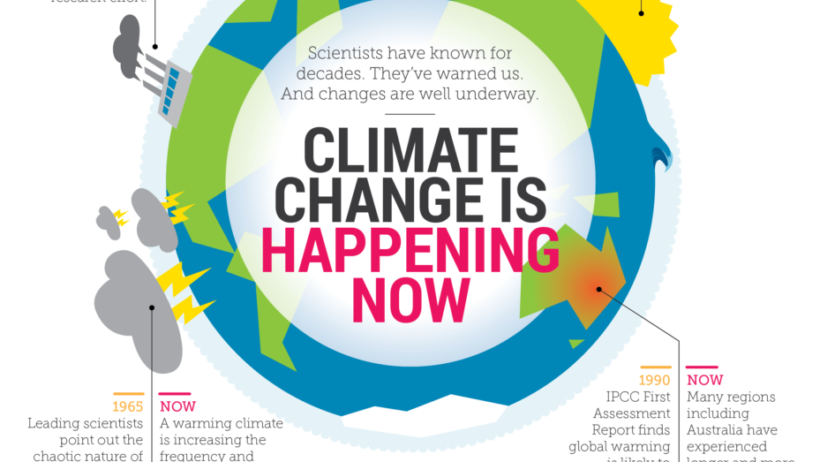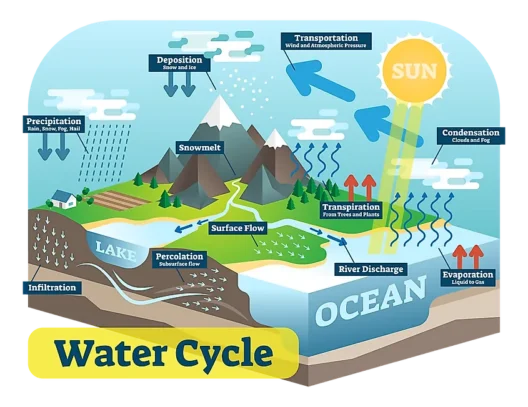Climate change has emerged as one of the most significant challenges of our time. Its impacts are not just theoretical predictions; they are tangible realities we witness daily. The overwhelming consensus among scientists is that climate change is indeed real. This article delves into the multifaceted evidence that substantiates this claim, examining various types of data and its implications.
To begin, it is essential to understand what climate change entails. Simply put, it refers to substantial alterations in global and regional climatic patterns over time. While climate change has always occurred due to natural fluctuations, the current rate of change is alarming. The primary driver of this rapid transformation is anthropogenic, predominantly due to the greenhouse gases emitted by human activities. This understanding leads us to the crux of the discussion: how do we know climate change is happening?
One of the most visible indicators of climate change is the increase in global temperatures. Since the late 19th century, the average global surface temperature has risen by approximately 1.2 degrees Celsius. This data comes from a variety of reliable sources, including NASA and NOAA, which utilize comprehensive datasets to monitor temperature changes. Such a rise might seem insignificant, but it has profound implications for ecosystems and human life.
The evidence of warming temperatures is corroborated by the melting of glaciers and polar ice. Ice sheets in Greenland and Antarctica are receding at an unprecedented rate. Satellite images reveal stark transformations over decades—large expanses of white ice retreating, exposing darker land which absorbs more sunlight and accelerates warming. The loss of Arctic sea ice, particularly during summer months, is another troubling manifestation of this trend. These alterations not only contribute to rising sea levels but also disrupt marine ecosystems and weather patterns.
Speaking of sea levels, they have risen steadily, primarily due to the thermal expansion of seawater as it warms and the addition of melting ice from glaciers and polar caps. Research indicates that global sea level rose by about 8 inches (20 cm) in the last century, with predictions suggesting further acceleration in the years to come. Coastal communities, ecosystems, and economies stand at risk as inundation events become more frequent and severe. The displacement of populations due to rising waters presents social and political challenges that are daunting.
Aside from ice melt and temperature rise, shifting weather patterns signal the reality of climate change. Extreme weather events, including hurricanes, heatwaves, droughts, and floods, have become increasingly common and severe in various parts of the world. The relationship between climate change and these occurrences is backed by rigorous scientific studies. For instance, warmer ocean waters can intensify tropical storms, resulting in catastrophic impacts, such as those witnessed in recent hurricane seasons.
Another vital aspect to explore is the impact of climate change on ecosystems. Biodiversity is under unprecedented threat as species struggle to adapt to rapidly changing conditions. Alterations in temperature and precipitation patterns disrupt habitat ranges, leading to shifts in species distribution. Many species face extinction as they cannot migrate quickly enough or lack suitable environments for relocation. This decline in biodiversity not only threatens individual species but also destabilizes entire ecosystems, with cascading effects on food webs and ecosystem services that humans rely on.
The acidification of oceans provides additional evidence of climate change and its ramifications. Higher levels of carbon dioxide in the atmosphere lead to increased absorption of this gas by oceans, resulting in a higher acidity level. This change adversely impacts marine life, particularly calcareous organisms like coral reefs and shellfish, which struggle to maintain their calcium carbonate structures in more acidic waters. The degradation of coral reefs can lead to the loss of vital marine habitats, affecting fisheries and coastal protection.
Human health is also intricately linked to climate change. The impacts are manifold—rising temperatures contribute to an increase in heat-related illnesses and fatalities, while altered weather patterns can exacerbate the proliferation of vector-borne diseases. For instance, warmer conditions may expand the habitat range of mosquitoes, leading to a heightened risk of diseases like malaria and dengue fever. Air quality can deteriorate due to increased levels of ground-level ozone, posing respiratory risks, particularly for vulnerable populations.
The economic ramifications of climate change are profound and far-reaching. As natural disasters become more frequent and intense, the costs associated with recovery efforts escalate. Agriculture, a cornerstone of many economies, is threatened by changing growing seasons, pests, and droughts, leading to food insecurity and rising prices. Insurance industries are grappling with mounting claims related to climate-related events, creating a ripple effect across markets. Such economic strain could lead to political instability, as governments struggle to manage climate impacts on citizens’ livelihoods.
Lastly, public awareness and action regarding climate change are crucial for addressing this existential threat. Education plays an instrumental role in fostering understanding and encouraging action. Grassroots movements and global summits raise consciousness and call for international collaboration in efforts to mitigate climate impacts. It is imperative for individuals, communities, governments, and businesses to recognize the urgency of the situation and to transition toward more sustainable practices.
In conclusion, the multi-faceted evidence illustrates that climate change is not a distant threat but a current reality. From rising temperatures and melting ice to altered ecosystems and economic ramifications, the effects are profound and widespread. As this phenomenon continues unchecked, the need for immediate and concerted action becomes ever more critical. The scientific consensus is clear: climate change is real, and its impacts will shape the future of our planet.




